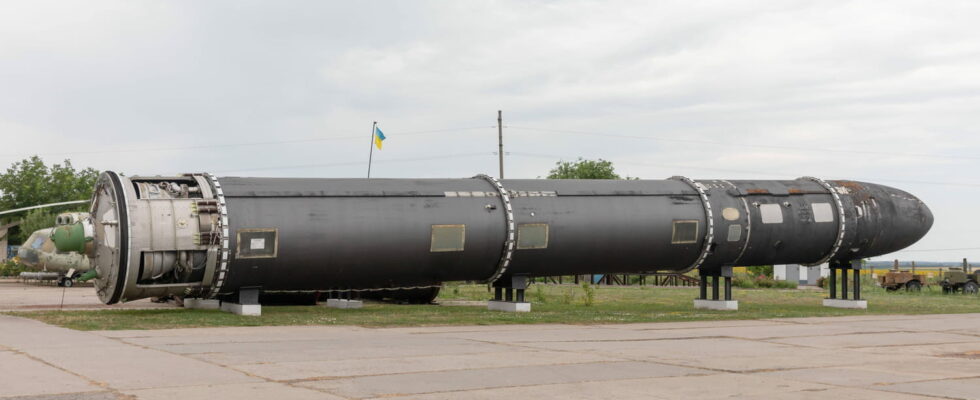kyiv accuses Russia of having launched an intercontinental missile, a heavy weapon possibly nuclear and never used, on the city of Dnipro in eastern Ukraine this Thursday, November 21. An attack which, if proven, signals a new escalation of the conflict.
New stage reached in the military escalation between Russia and Ukraine? This Thursday, November 21, kyiv announced that the city of Dnipro, in the east of the country, was targeted by Moscow with a heavy, potentially nuclear weapon, never before used in the war in Ukraine. “An intercontinental ballistic missile was launched from the Russian region of Astrakhan”, more than 1,000 kilometers from the target, the Ukrainian Air Force said in a statement published on social networks.
Another Ukrainian source insisted to AFP that it was a “first time” after more than two and a half years of armed conflict between the two countries. But the use of such a weapon is far from trivial. These missiles have a range of more than 5,500 kilometers and are designed to carry nuclear warheads, although they can also be armed with a conventional explosive charge. In this case, a Ukrainian military source told AFP that the missile did not carry a nuclear warhead. For its part, the Kremlin refuses to make any comments on the attack denounced by Ukraine. “I have nothing to say on this topic,” Kremlin spokesperson Dmitri Peskov simply said during his daily briefing to the press.
A video circulating on social networks since Thursday films an attack launched from the Dnipro which could correspond to an intercontinental missile launch. But the attack has yet to be proven.
An attack “never seen before”
This attack involving an intercontinental missile comes only days after a “massive attack” by Russia against Ukraine and after Vladimir Putin made the decision to lower the trigger threshold for launching a nuclear strike by signing a decree going in this direction. From now on, Russia reserves the right to use nuclear weapons in the event of a “massive” attack on a non-nuclear country but supported by a nuclear power, such as Ukraine supported by the United States. , but also by France.
A set of actions which has the effect of a new nuclear threat. The Russian president has often brandished this threat since the invasion of Ukraine in February 2022, but this time the words are accompanied by concrete strikes. And these actions are highly symbolic since the intercontinental missile, developed during the Cold War as a nuclear deterrent, has never been used by the few powers that have it. But it is “more of a warning than anything else”, according to a French military source contacted by the Figaro. The fact remains that “if it is proven, it is serious. This would allow the Russians to underline both their determination and their credibility (operational, technical and political – the three ingredients of nuclear deterrence)”, added another senior ranked in the newspaper. And another to always complete with the Figaro : “If it is confirmed, it is symbolically very strong. Never seen before.”
Faced with this Russian strategy, Ukrainian Foreign Minister Andriy Sybiga told the US Congressional Committee that “their revised nuclear doctrine and their rhetoric on the use of nuclear weapons are nothing more than blackmail.” . The fact remains that Ukrainian President Volodymyr Zelensky has shown signs of concern. A fear, however, more linked to the cessation of the sending of American aid to kyiv than to the effective use of a nuclear weapon by Moscow.
